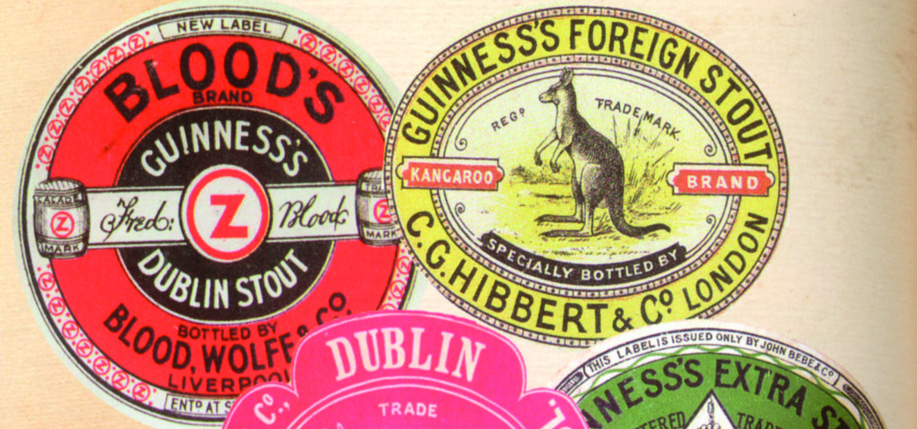Tradition. A word that embodies Guinness, a brand which celebrated its 250th anniversary in 2009. In 1759, Arthur Guinness set the stage for the iconic brand by signing a 9,000-year lease at St. James’s Gate Brewery in Dublin. Guinness provided his workers with wages that were 10 to 20 percent higher than the local average, provided paid holiday vacations, and offered free heath care. Since that historic year, Guinness has had some of the most successful advertising campaigns in history. From the legendary toucan to the harp logo that is synonymous with the Irish coat of arms, to slogans such as “Guinness Is Good For You,” “My Goodness, My Guinness,” and “Guinness for Strength,” the hallowed stout has touched millions of people worldwide. Kangaroos, ostriches, seals, whales, and lions have appeared in the renowned campaign, but the most notable mascot is the Guinness toucan that was created by John Gilroy in the 1930’s. In the 1940’s Guinness ran an ad campaign that cemented the toucan’s legacy in Guinness lore with the jingle, “Toucans in their nests agree, Guinness is good for you, try some today and see, what one or toucan do.” This campaign ignited an even greater interest in Guinness and appealed to millions of people worldwide. With the use of such animals as the toucan and other exotic creatures, Guinness expanded its global reach to their consumers. Gilroy designed more than fifty posters for Guinness, many of which are still widely popular today.
Approximately 10 million glasses of Guinness are enjoyed every day around the globe, proving that every day is a lovely day for a Guinness. Brewed in almost 50 countries and available in nearly 100, it is the world’s bestselling stout, and something that the Irish are extremely proud of. Guinness is not strictly Irish-brewed; in 1962 the company founded a large brewery in Nigeria that produces Foreign Extra Stout, also known as “Nigerian Guinness,” which is tremendously popular. The brewery also produces “Guinness Extra Smooth,” a less bitter variety of the Foreign Extra Stout. Nigeria is the third-largest Guinness market in the world.
Guinness has other attributes as well, such as being good for you. Researchers have found certain antioxidants similar to those found in some fruits and vegetables. These antioxidants slow down the deposit of harmful cholesterol. The slogan “Guinness Is Good For You” is no longer used as frequently as it once was, and the company’s ads now advocate “Responsible Drinking.” This does not seem to affect consumers’ brand loyalty, however, and Guinness is still one of the most recognizable brands worldwide.
Motivated by what can only be described as pride, Nick Fairall and David Hughes have compiled a unique, extensive collection of the history of Guinness through various ads and products that have been released throughout the years in their book, The Guide to Guinness Collectables, which is available now in celebration of the landmark anniversary. The Guide to Guinness Collectables pays homage to the rich history of the brand and the global reach that it has had throughout the years. Fairall, the founder of the Guinness Collectors Club, the only third party in the world with full legal permission to use Guinness copyrighted material, and Hughes, a Guinness brewer based in Park Royal and Nigeria between 1972 and 1988, have collaborated to come up with an extraordinary book that explores the deep history of Guinness, and pays tribute to the Guinness family’s creative genius. From the casual fan to the serious collector, there is always more to learn and to discover about one of the finest, well-respected brands in the world. Here’s to the next 250 years.
If you ever visit the Guinness Brewery in the heart of Dublin, be sure to visit the Guinness Storehouse at St. James’s Gate, which is Ireland’s number one international visitor attraction: http://www.guinness-storehouse.com, Tel: + 353 1 408 4800. ♦
_______________
This article was originally published in the August / September 2009 edition of Irish America.


Leave a Reply